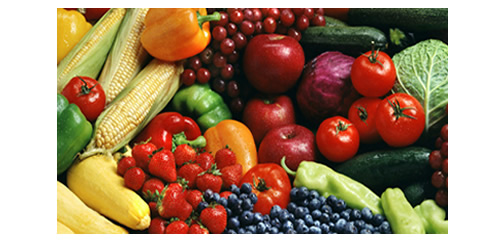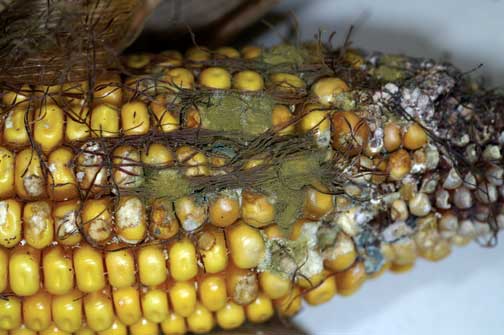Tanzania: Concern As Maize Price Climbs 40pc
Dar es Salaam — Maize price have increased by 40 per cent due to shortages, raising concerns of food insecurity in the country later this year.
The Bank of Tanzania’s February Monthly Economic Review has indicated that wholesale prices for a-100 kilo bag of maize increased from Sh67,044 in January 2016 to Sh93,356 in January 2017.
The prices of other major food crops increased marginally with the exception of the prices of rice which actually declined by nine per cent from Sh178,803 in January 2016 to Sh162,745 in January 2017, the BoT Review for February 2017 shows.
The wholesale prices of beans increased by 1.2 per cent from Sh173,501 in January 2016 to Sh175,602 in January 2017 while that of sorghum increased by 10.5 per cent in the period of review from Sh85,906 to Sh94,899 and that of potatoes increased by 5.7 per cent to Sh83,467 from Sh78,980 in the sam period.
The BoT did not give the reasons for the significant rise in maize prices, which is the main staple food in Tanzania, within the last 12 months.
But the ministry of Agriculture, Livestock and Fisheries Development says in its food security report released in January that the increase of maize prices in Tanzania in end year/start of year (November-February) is a normal trend that is triggered by the tendency of traders to hold back stocks during the rain season as they wait for prices to rise.
The ministry’s report actually shows that prices tend to rise at the beginning of the year when crops are still in the fields, declining towards the mid-year (during and after harvests) and picking up again towards the end of the year (during the planting season.)
Data from both the ministry and BoT show that the wholesale prices of a-100 kilo bag of maize in January 2015 was Sh38,232, which was equivalent to a reduction of 68 per cent over the prices of January 2014 (Sh56,152).
The 2014 maize prices had declined by 26.8 per cent from the January 2013 prices of Sh76,740. But the Ministry of Agriculture was quick to warn that the food situation this year was not normal.
That below average rainfall, both in bimodal and unimodal areas have affected maize production in the 2016/17 rainy season and has led to an unusual holding of stock by traders.
“This year traders held more stocks than usual from the markets after seeing below average Vuli rains. They know shortage of rains would lead to lower maize production and they are hoping for even higher prices,” the report says.
Maize planted at the start of the Vuli rains in September contribute between 17 and 20 per cent per cent to total national food stock, the report adds.
“The ministry urges traders to release maize to the market to take advantage of the current good prices,” the report said, adding that the ministry also advises wananchi to stock their food surplus because of anticipated shortages in the 2017/18 harvest season.
In addition to a hike in prices the Bank of Tanzania indicated that maize stock in the National Food Reserve Agency (NFRA) in January were also well below the monthly average as compared to the past few years.
The NFRA stock, which mainly consists of maize and sorghum, had 86,834 tonnes at the end of January 2017 slightly below 89,692 tonnes held in December 2016.
The Bank of Tanzania attributes the decline to “the selling of 2,858 tonnes of maize to traders, the Prisons Department and the Disaster Relief Coordination Unit of the Prime Minister’s Office.”
However, records show that the grain stock held by the NFRA was below the monthly average of 100,000 tonnes for 2016 as compared to a monthly average of above 300,000 tonnes in 2015, an average of above 200,000 in 2014 and an average of above 100,000 in 2013.
The NFRA has 33 grain silos that have the maximum capacity of storing 246,000 tonnes of grains.
The ministry of Agriculture, on its part, assured the people, however, that the food security for the 2016/17 season would be alright due to good harvest during the 2015/16 planting season.
“Preliminary forecast drawn from food production in the 2015/16 shows food production in the country would reach 16,172,841 tonnes (grain equivalent). Out of these 9,457,108 tonnes are cereal crops and 6,715,733 non-cereal crops,” the report said adding that the country’s 2016/17 food demand stands at 13,159,326 tonnes (8,355,767 tonnes of cereals and 4,803,560 tonnes for non-cereals.)
The ministry of Agriculture report further says that maize production in 2015/2016 season was 6,148,699 tonnes that are enough to meet 2016/2017’s demand of 5,202,415 tonnes.
“We can assure consumers that there will be a surplus of 946,284 tonnes of maize as we expect the food sufficiency ratio to be 118 per cent,” the ministry’s report reads in part.
Credit: allafrica.com




